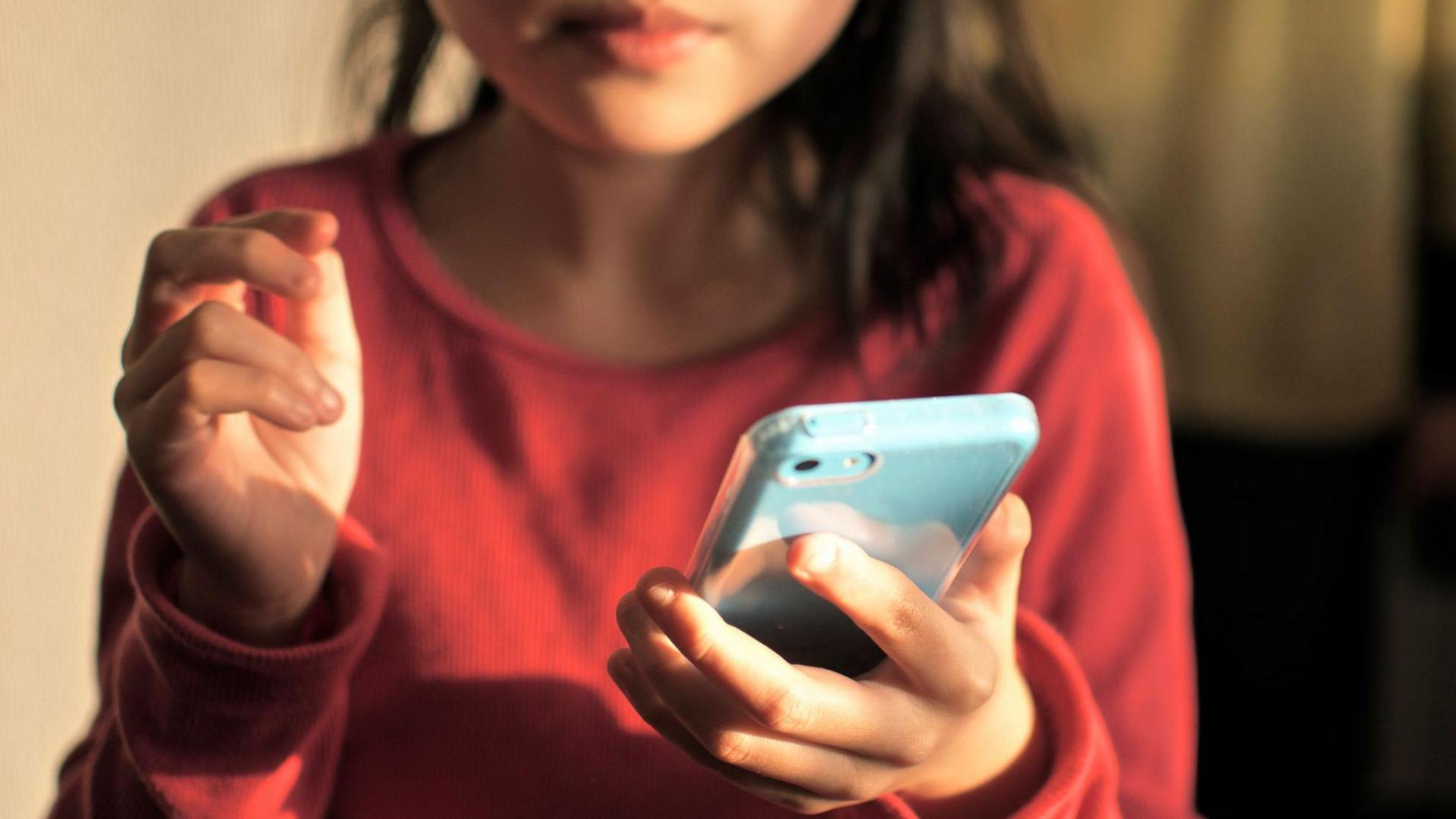School seeing benefits of smartphone ban
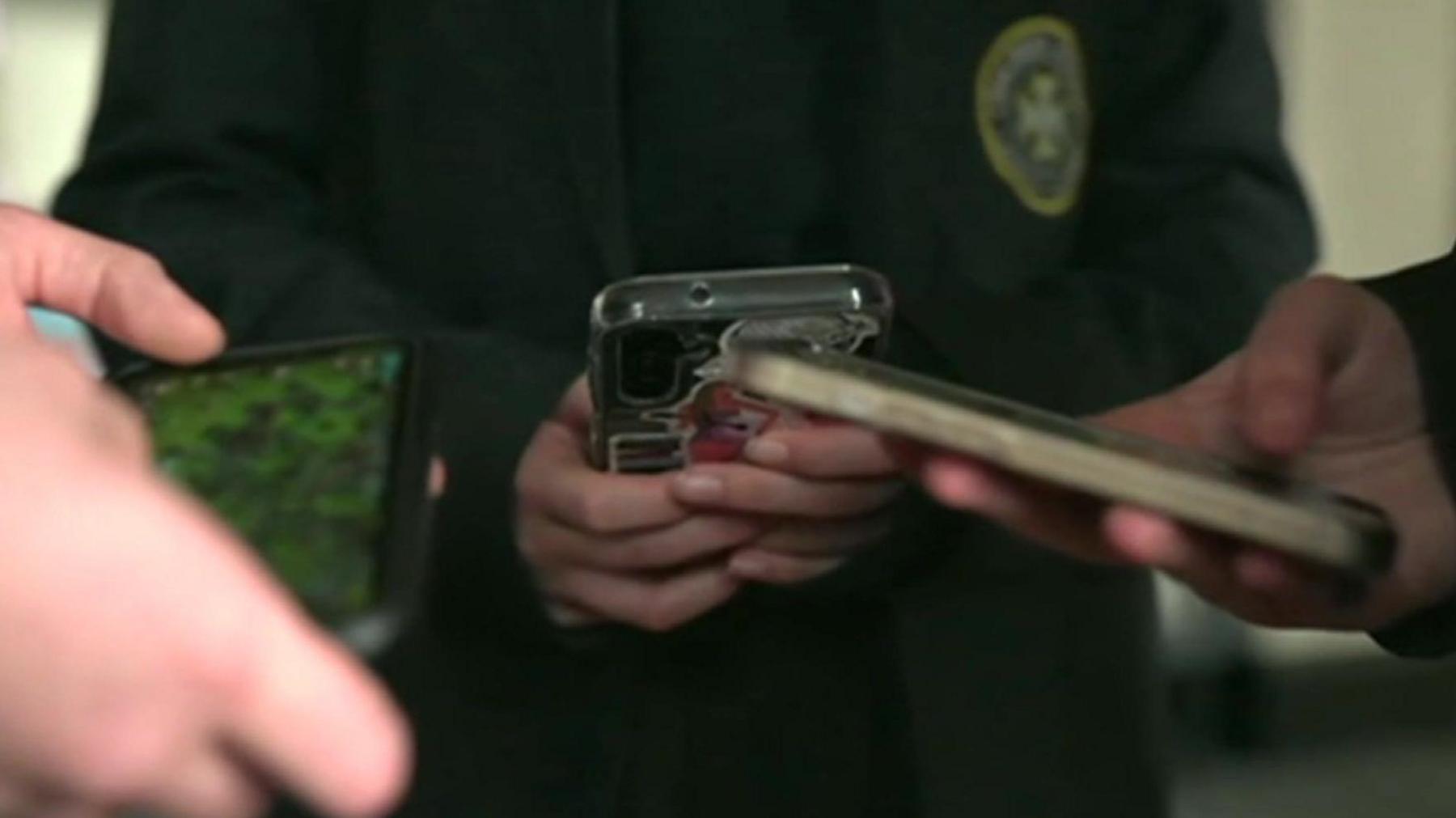
Pupils at St Swithun's School in Winchester are no longer allowed to use their phones during the school day
- Published
A school which banned the use of smartphones has become "more sociable", the head teacher has said.
At the beginning of this academic year, St Swithun's School in Winchester stopped pupils between Years 7 and 11 from using phones during the school day.
It follows a campaign by the Smartphone Free Childhood group, calling for a national ban on phones in schools.
Head teacher Jane Gandee said she had been "worried" about the effects of phone use on pupils' mental health.
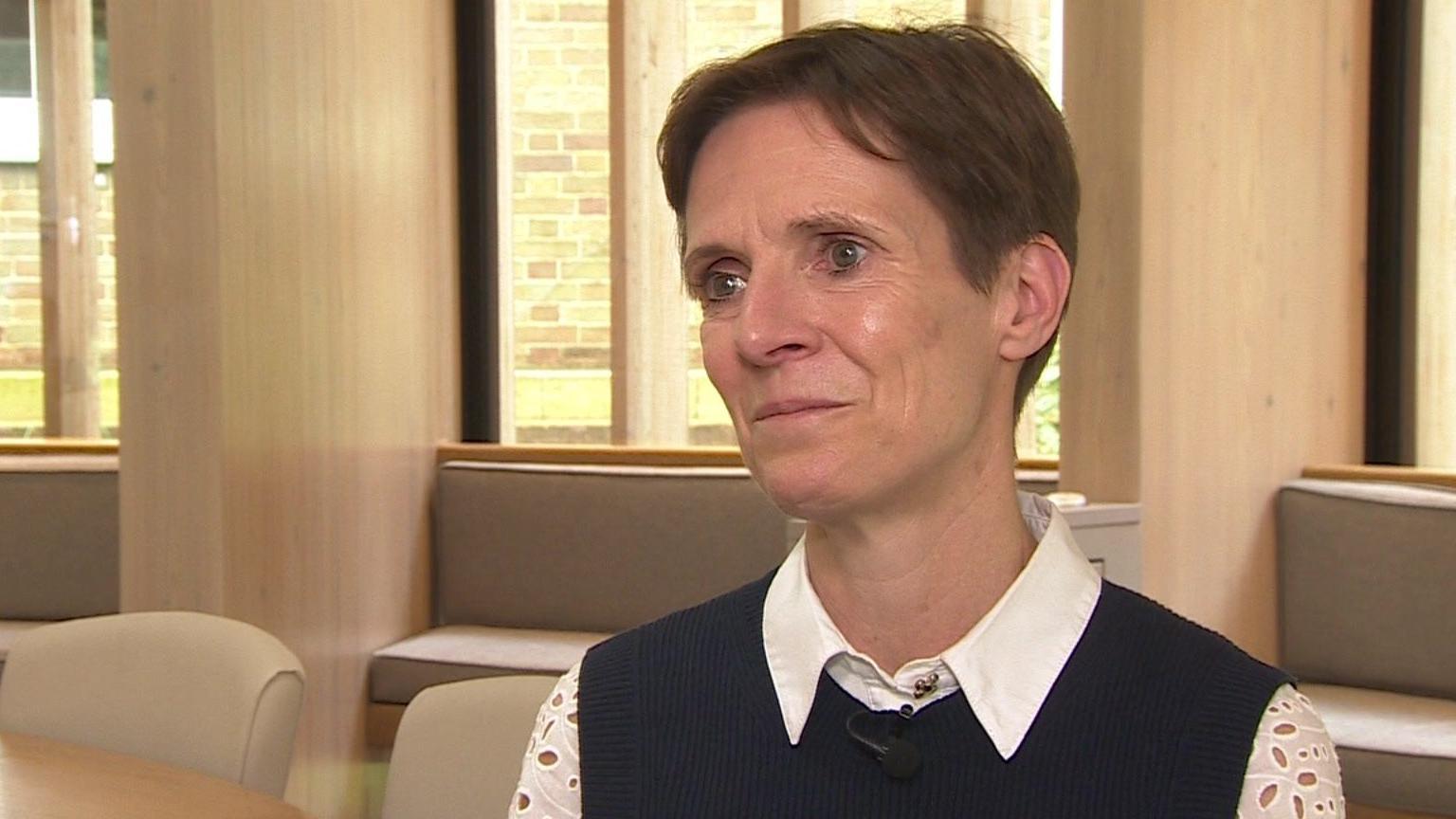
Head teacher Jane Gandee said she had been concerned about pupils phone usage
St Swithun's, an independent girls-only school, installed a system which uses specially designed pouches with time locks.
They allow students to keep hold of their phones but only use them when the time lock opens.
Previously, the school had let pupils access their phones from lunchtime.
Ms Gandee said: "We could see they were getting a stream of message and that was taking them out of the normal routine of the day.
"They would be heads down and not talking to each other, which made me think we must act now before their brains are completely rewired.
"It seems the girls aren't really thinking about their phones as they used to.
"I definitely think heads are up, people are interacting, it's a more sociable school."
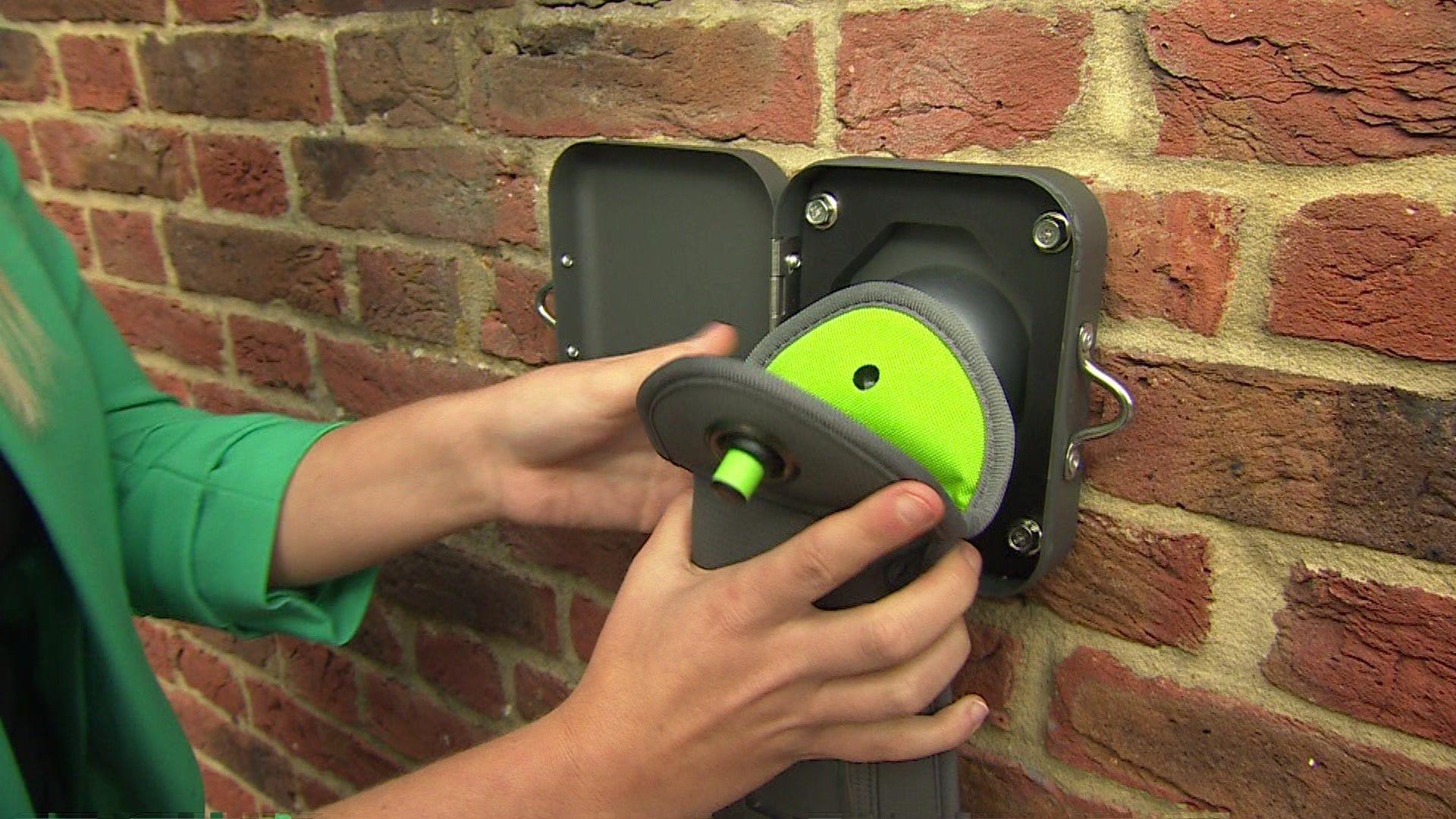
The school installed a system of time-locked pouches
Among the pupils, opinions on the phone ban were generally positive.
"The thing with phones, it's a distraction that can take you out of the moment, especially with GCSEs coming up, it makes me more focused on revising," said one.
Another said: "Maybe instead of being on my phone, I should play more sport, socialise with my friends, but I do think it is really important to have down time to yourself and still able to use social media or contact your parents."
The Smartphone Free Childhood group's Parent Pact has seen more than 58,000 parents pledge not to give smartphones to their children until the end of Year 9.
The group estimates only 11% of schools have an effective ban on smartphones in place.
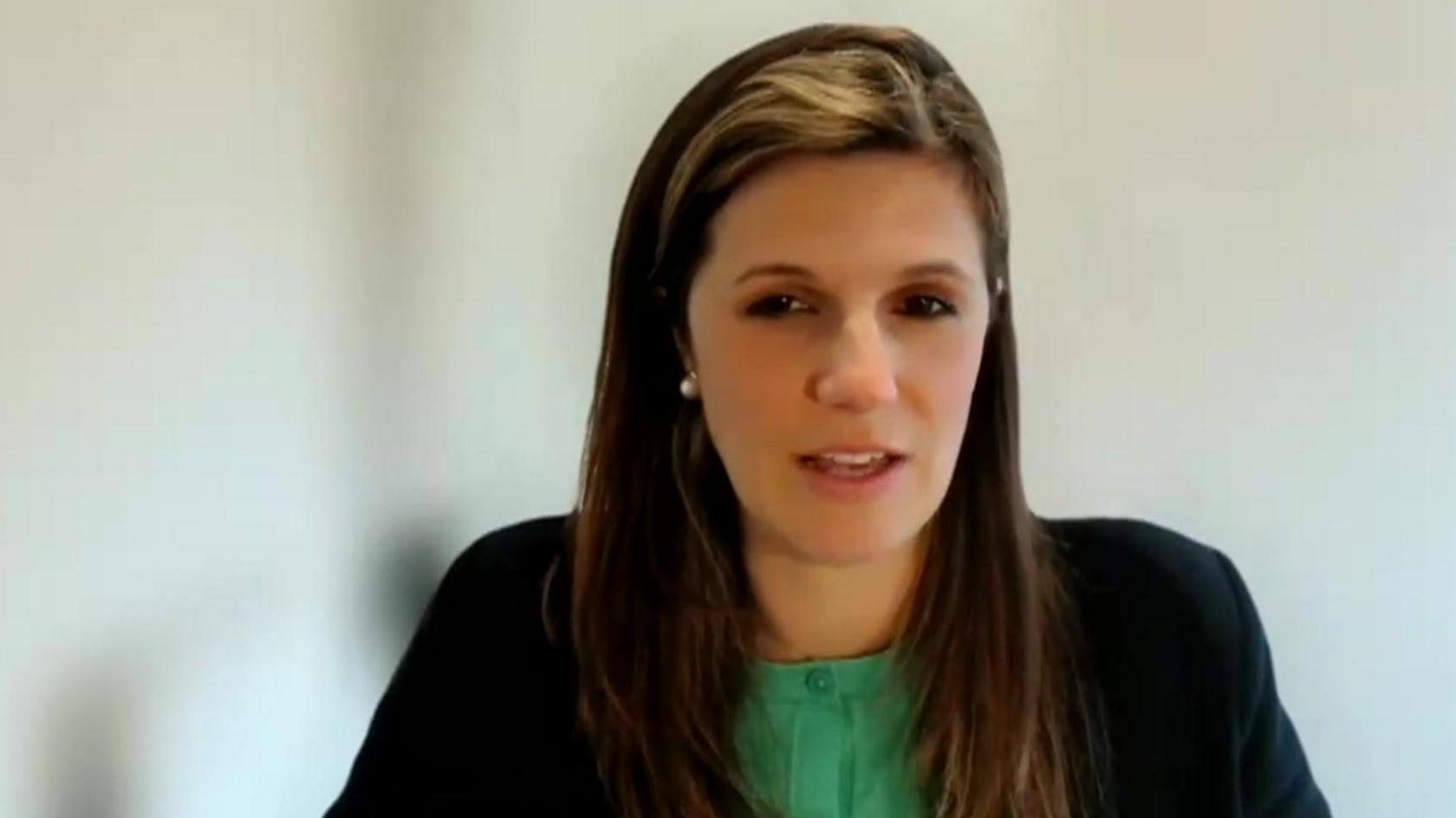
Clare Fernyhough co-founded Smartphone Free Childhood
Hampshire mum Clare Fernyhough, who co-founded the group, said: "These are adult devices, they aren't designed for children.
"We need to pause and take a step back and say 'is this what we want?'."
Clinical psychologist Angharad Rudkin said there was still research needed on the educational effects of smartphone bans in schools but said parents have an "immensely important job" in guiding their child's relationship with technology.
"Teachers can add to that a little bit but they certainly can't change screen behaviour - it has to be parents who are doing that from day one, when their child has access to screens," she said.
The government has stopped short of banning smartphones but guidance was issued by the previous Conservative government to ensure that all schools in England implement effective smartphone-free restrictions.
Last week, technology secretary Peter Kyle said schools were voluntarily choosing to restrict their use by pupils.
Get in touch
Do you have a story BBC Hampshire & Isle of Wight should cover?
You can follow BBC Hampshire & Isle of Wight on Facebook, external, X (Twitter), external, or Instagram, external.
Related topics
See also
- Published19 February 2024

- Published10 October 2024
